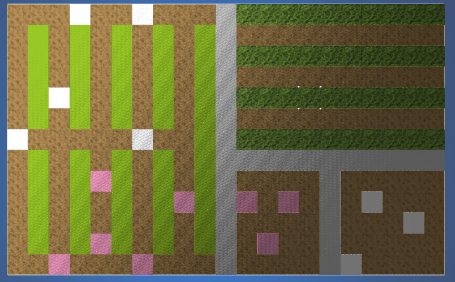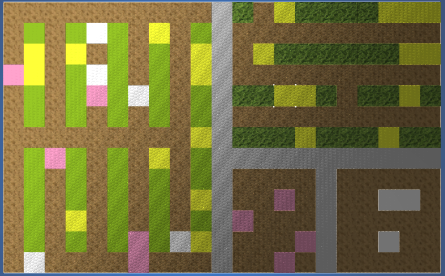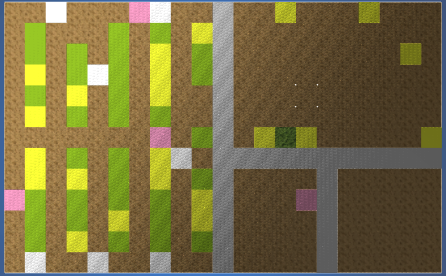Livestock Integration Model: AgentCubes Model

AgentCubes Model
By Om Nerurkar

Model Description
The main goal of my AgentCubes model was to illustrate the interaction of both crops and livestock and the potentical benefit for both parties involved in real time.
I also wanted to display to the viewer a direct comparison between a traditional farming method (i.e. segregation of livestock and crops) versus an integrated
model. In order to make the model more interactive, I decided to display a graph and allow the user to change the simulation properties.
Agents and Shapes
Agent
Shape
Color
Crop
Fertilized
Light Green
Unfertilized
Yellow
Regular
Dark Green
Cow
Cow
White
Pig
Pig
Pink
Soil
Soil
Brown
Counter
Counter
LadyBug
How to Use the Model
To run the model press the green play button at the top. To stop the model press the red button at the top.
To edit the simulation properties, click the settings icon in the top left and choose "Show Simulation Properties."
Link to Model
How Did My Model Work on Different Scales?
I noticed that the model on a smaller scale was much more stable and responded quickly to the drastic changes caused by the fertilized crops becoming unfertilized.
How Did I Try to Break my Model?
I found out that increasing my unfertilization rate by more than 90 created massive, unrealistic fluctuations in the number of fertile and infertile crops.
What Did I Learn From This Model?
This model confirmed the research I had done on more effective farming practices. It proved that livestock integration is more cost-effective, sustainable,
and efficient in the long term than other farming practices. I also learned that smaller farms tend to recover better from bouts of infertility in their crops,
something that I found was also linked closely to the number of livestock present.
Screenshots
The model at the start: 
The model after 15 seconds: 
The model after 45 seconds: 
The progress of the model over time clearly illustrates the ever growing disparity between the increased efficiency of the livestock integration
process when compared to modern-day farming practices. It also indicates that the livestock integration process is a better use of farmland space,
decreasing the need for more barriers to keep livestock and crops separate.

AgentCubes Model
By Om Nerurkar

Model Description
The main goal of my AgentCubes model was to illustrate the interaction of both crops and livestock and the potentical benefit for both parties involved in real time. I also wanted to display to the viewer a direct comparison between a traditional farming method (i.e. segregation of livestock and crops) versus an integrated model. In order to make the model more interactive, I decided to display a graph and allow the user to change the simulation properties.
Agents and Shapes
| Agent | Shape | Color |
|---|---|---|
| Crop | Fertilized | Light Green |
| Unfertilized | Yellow | |
| Regular | Dark Green | Cow | Cow | White |
| Pig | Pig | Pink |
| Soil | Soil | Brown |
| Counter | Counter | LadyBug |
How to Use the Model
To run the model press the green play button at the top. To stop the model press the red button at the top. To edit the simulation properties, click the settings icon in the top left and choose "Show Simulation Properties."
How Did My Model Work on Different Scales?
I noticed that the model on a smaller scale was much more stable and responded quickly to the drastic changes caused by the fertilized crops becoming unfertilized.
How Did I Try to Break my Model?
I found out that increasing my unfertilization rate by more than 90 created massive, unrealistic fluctuations in the number of fertile and infertile crops.
What Did I Learn From This Model?
This model confirmed the research I had done on more effective farming practices. It proved that livestock integration is more cost-effective, sustainable, and efficient in the long term than other farming practices. I also learned that smaller farms tend to recover better from bouts of infertility in their crops, something that I found was also linked closely to the number of livestock present.
Screenshots
The model at the start:

The model after 15 seconds:

The model after 45 seconds:

The progress of the model over time clearly illustrates the ever growing disparity between the increased efficiency of the livestock integration process when compared to modern-day farming practices. It also indicates that the livestock integration process is a better use of farmland space, decreasing the need for more barriers to keep livestock and crops separate.